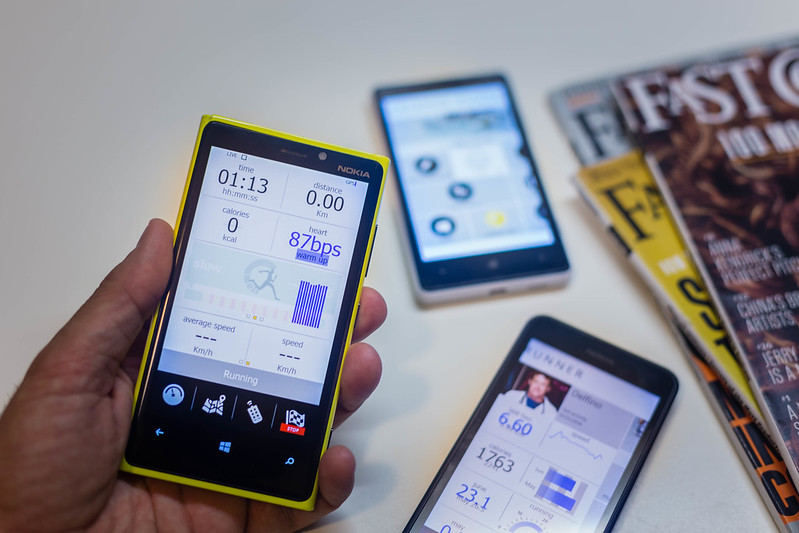
Editor’s Note: Deborah Hernandez is the Director of Client Services at Communispace Health
It’s hard to find a pharma or medical device company these days that doesn’t have at least one mobile app in development. And now that, as of February 2015, the U.S. Food and Drug Administration (FDA) has issued guidance on which apps need to be regulated and which ones don’t, it will be interesting to see if this almost exponential development trend continues.
In its guidelines, FDA outlined which mobile apps must apply for 510(k) certification – also known as a Premarket Notification (or PMN) – a requirement to market a medical device. In the mobile device category are those apps which function as a medical device; apps that control, support, or augment an existing medical device; and apps that transform a mobile platform into a medical device. Mobile apps that use patient data to provide diagnosis or treatment recommendations also require 510(k) submission.
Having to submit for these applications now changes the app development game. And many questions abound. For example, “Will it be worth [app designers’] investment in time and money?” asks Larry Stofko, Executive Vice President of the Innovation Institute. “Disruptive change can be painful,” he says, “but in the end, if we improve patient care, we’ll have accomplished what we set out to do.”
Federal guidance alone doesn’t guarantee an app’s success, and there is still plenty of playing field for developers in the health and wellness space for apps that do not require 510(k) submission. Therefore, developers and marketers alike must keep in mind these three key drivers of mobile health app adoption.
1. Awareness
In a 2014 poll by QuantiaMD, only 37% of physicians surveyed said that they had recommended a mobile app to their patients. In another QuantiaMD poll, 42% of physicians said they would not recommend a mobile health app to patients because there was no regulatory oversight (though the new FDA guidance should help with this). In addition, another 37% percent had no idea what mobile health apps are out there.
In spite of physicians being split on the utility of apps, consumers are downloading them at a rapid pace. In fact, it is estimated that within the next three years half of all smartphone and tablet users will have at least one mobile health or wellness app, like Lose It!, RunKeeper, or Glucose Buddy. But, downloading doesn’t necessarily mean they are using them! There is enormous opportunity for healthcare marketers to more effectively demonstrate the myriad of app benefits to patients and physicians alike.
2. Results and outcomes
Twenty-one percent of doctors in the above second poll said, because of a lack of longitudinal data on effectiveness, they won’t prescribe a mobile health app to patients. While most apps lack sufficient long-term data to date (due to very little time in market), some are showing promise in truly changing behaviors.
For example, Novartis partnered with INVIVO Communications to develop the Helio app for Chronic Obstructive Pulmonary Disorder (COPD) sufferers. Launched in three countries, Helio has a gamification element that rewards COPD patients and therefore helps to drive behavior changes. While it’s too early to measure the app’s long-term benefits, early reports indicate that patients are indeed modifying some of their behaviors. Helio is up for an award in the Most Valuable Patient Initiative category at this year’s eyeforpharma Philadelphia Awards.
3. Persistency
Reportedly, after six months, close to half the patients who downloaded the Helio app were still using it. Continued use like that is the holy grail of disease state management. For example, sticking to an exercise program long after the New Year’s resolutions are forgotten. Adopting better sleep hygiene and patterns. Remembering to take medications, and continuing the process of renewing them. These are just a few of the many opportunities for making continued health and wellness behavior changes. If someone cracks the code (pun intended) on an app that truly drives adherence, then lives will be changed and, potentially, significant costs could be driven out of the healthcare system.
Building an app that sits in the app store rarely to be downloaded is never a developer’s goal. So growing awareness and incorporating elements that yield positive outcomes through persistent behavior change are critical to meeting treatment goals. But designing a transformative, disruptive app that drives positive change and potentially improves health requires close collaboration with the end users. In ARC’s The 2015 State Of The U.S. Health & Fitness Apps Economy, the report recommends that app developers engage early and frequently with users. From UA/UX testing, to understanding digital behaviors, to the lexicon to functionality, brands must co-create disruptive mobile apps centered around meeting patients’ needs to lead healthier lives.
Deborah has more than 20 years of experience in the healthcare industry, working in pharmaceuticals, biotech, health informatics, medical devices, consumer health and hospital marketing. Currently, Deborah serves as Director of Client Services at Communispace Health, and she has led sales and marketing efforts at Abbott, TAP Pharmaceuticals, Biogen Idec, StemCyte and Boston Children’s Hospital.
